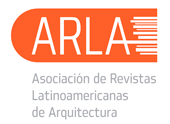WETLAND URBANISM
Resumen
ABSTRACT
This article offers an analysis of settlement patterns that are on the periphery of a historic urban center and which are enmeshed in a resource-rich natural environment that provides the economic driver for the region. The combination of particular conditions provided here — urban fringe, fragile ecology and extensive resource extraction — proves to illustrate a form of development that embraces a specific environmental context while conforming to its globally connected industrial underpinnings. The effects of these contradictive influences are legible in the resulting fabric of its communities, towns and cities. Consideration of the influences shaping its current development and future potentials offer opportunities to theorize about urbanization in similar contexts throughout the world.
RESUMEN
En este artículo se presenta un análisis de los patrones de asentamiento que se encuentran en la periferia de un centro urbano histórico, y que están inmersos en un entorno natural rico en recursos que proporciona el motor económico de la región. La combinación de las condiciones particulares previstas aquí –periferia urbana, frágil ecología y la extensa extracción de recursos– ilustra una forma de desarrollo que abarca un contexto ambiental específico, con base en la industria conectada en el mundo. Los efectos de estas influencias contradictorias son legibles en el tejido resultante de sus comunidades, los pueblos y ciudades. La consideración de las influencias que dan forma a su desarrollo actual y potencial futuro ofrece oportunidades para teorizar sobre la urbanización en contextos similares en todo el mundo.
Referencias
Meffert, D. J. & Joshua, A. L. (2012). New Orleans. In E. J. Blakely & A. Carbonell (Eds.). Resilient Coastal City Regions (pp. 56–89). Cambridge, MA: Lincoln Institute of Land Policy.
The Data Center (2014). The Coastal Index. New Orleans: Hobor, George, Allison Plyer & Ben Horwitz.
Tidwell, M. (2003). Bayou Farewell: The Rich Life and Tragic Death of Louisiana’s Cajun Coast. New York: Vintage Departures.
Webb, M. (2010). Say Not The Struggle Naught Availeth. In 49 Cities, WORK Architecture Company, Storefront Books, New York.







